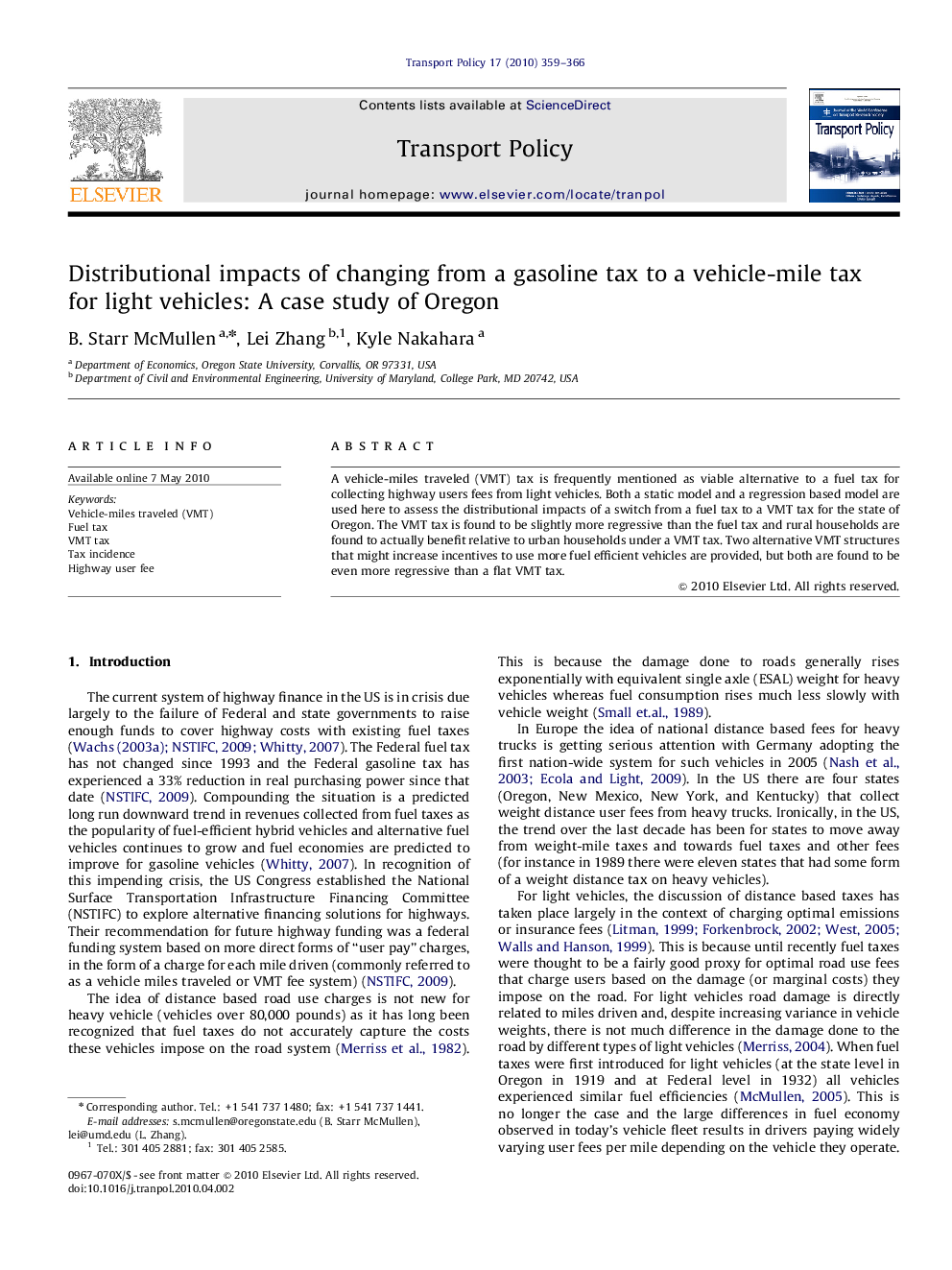| Article ID | Journal | Published Year | Pages | File Type |
|---|---|---|---|---|
| 1065502 | Transport Policy | 2010 | 8 Pages |
Abstract
A vehicle-miles traveled (VMT) tax is frequently mentioned as viable alternative to a fuel tax for collecting highway users fees from light vehicles. Both a static model and a regression based model are used here to assess the distributional impacts of a switch from a fuel tax to a VMT tax for the state of Oregon. The VMT tax is found to be slightly more regressive than the fuel tax and rural households are found to actually benefit relative to urban households under a VMT tax. Two alternative VMT structures that might increase incentives to use more fuel efficient vehicles are provided, but both are found to be even more regressive than a flat VMT tax.
Keywords
Related Topics
Social Sciences and Humanities
Social Sciences
Geography, Planning and Development
Authors
B. Starr McMullen, Lei Zhang, Kyle Nakahara,
